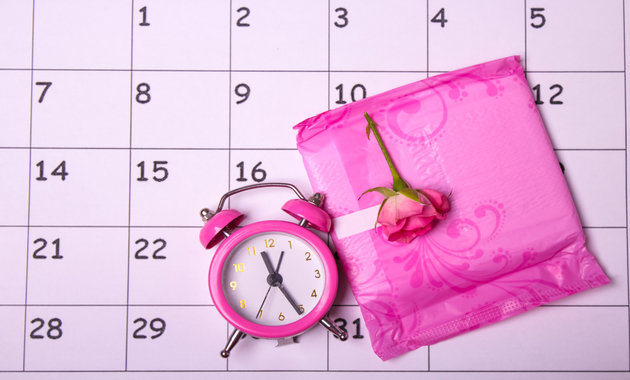
Despite menstruation being a natural process that is part of every female’s life, the topic is still cloaked with a curtain of silence. It is still looked upon as a taboo in countless cultures and societies across the globe.
Most of us go through our periods secretively and rarely bother to figure out if our practices are hygienic or not. Menstrual Hygiene Day offers the opportunity to create awareness about the right of women and girls to hygienically manage their menstruation – in privacy, safety and with dignity – wherever they are, to talk about how to maintain menstrual hygiene and intimate care during “those days” of the month.
Let’s look at ways in which every woman can manage their menstrual hygiene and intimate care easily and effectively –
1. Choose your method of menstrual protection alternative
Today, women have various options of sanitation to choose from depending upon their comfort, which includes sanitary pads, tampons, cloth pads & menstrual cups. In the rural areas, usage of cloth is still observed.
2. Change your sanitary wear regularly
There is nothing “impure” with the menstrual blood itself. Once the menstrual blood leaves the body, bacteria are formed causing the blood to smell. Hence, it is very important to change your menstrual flow management product (pads or cloth or tampons) every 4 – 6 hours to keep infections and rashes at bay.Cloth needs to be changed more often as its absorbency is very low.
3. Wash yourself regularly:
Women sweat and the bacteria formed in the blood does cause bad odor during periods. It is essential to wash your genital area regularly to remove excess blood and beat the odor and then pat yourself dry, especially before changing into a new pad. Some women get a sticky discharge with the menstrual flow and it can be very messy if using sanitary pads. It is imperative to keep the area clean and dry for it to be kept infection free.
4. Don’t use soap
The vagina has its own cleaning mechanism that works in a very fine balance of good and bad bacteria. Soap can kill the good bacteria making way for infections. Washing the genitals with lukewarm and clean water works best. A small percentage of women do find that some soaps, especially the highly scented ones, can cause irritation. Consult your doctor before using a mild soap or vagina washes available in the market.
5. Bathing
Bathing not only cleanses your body but also gives you a chance to clean your private parts. It also helps to relieve cramps, backaches, helps improve your mood and makes you feel less bloated.
6. Watch what you wear
Avoid tight clothing like jeans. Wearing clothes close to your vagina can cause increased moisture and heat, which will irritate your skin. Wear cotton underwear, reasonably tight to hold your sanitary pad in place, and loose-fitting clothes to stay fresh! Wear fresh inner wear every day. Change your underwear twice a day, if possible.
7. Washing technique
Always clean your genitals from the vagina to the anus. Never wash in the opposite direction as it can cause bacteria from the anus to come on to the vulva, leading to infections.
8. Discard used sanitary product correctly
It is essential to discard your menstrual protection in a manner that does not spread infection and odor around for others. Never flush it down a drain as it does cause clogging. Some may even choose to burn the used sanitary napkin to dispose it off. Wash your hands well after discarding the used product. If you are cleaning the menstrual cup, ensure there is no spillage of blood and clean the cup thoroughly as instructed. In case of cloth, regular washing with antiseptics is of utmost importance. Drying your menstrual cloth and underwear under the sun after washing them, acts as a good disinfectant.
9. Avoid Rashes
A rash can occur if proper menstrual and intimate hygiene is not maintained when the menstrual flow is heavy or there is excessive sweating near the inner thighs or due to friction between thighs and vulva region. It happens due to the constant brushing of the pad and skin. To prevent rashes stay clean and dry. If you do have a rash, change your pad regularly and apply an antiseptic ointment, after a bath and before going to bed to heal the rash and prevent further chaffing. Visit the doctor if it gets worse who will prescribe you a medicated powder that can keep the area dry.
10. Be ready for and during your periods
Every girl/woman should carry their menstrual protection method a few days prior to their periods’ due date to maintain menstrual and intimate hygiene. It is wise to have a pad or tampon always in your bag. Ensure it is well packed to avoid contamination. This will keep you confident and ease the constant worry about staining clothes when out. Carry some healthy snack in case you feel weak or exhausted and water to keep you hydrated.
**Consult India’s best doctors here**
This article has been published with support of Oowomaniya